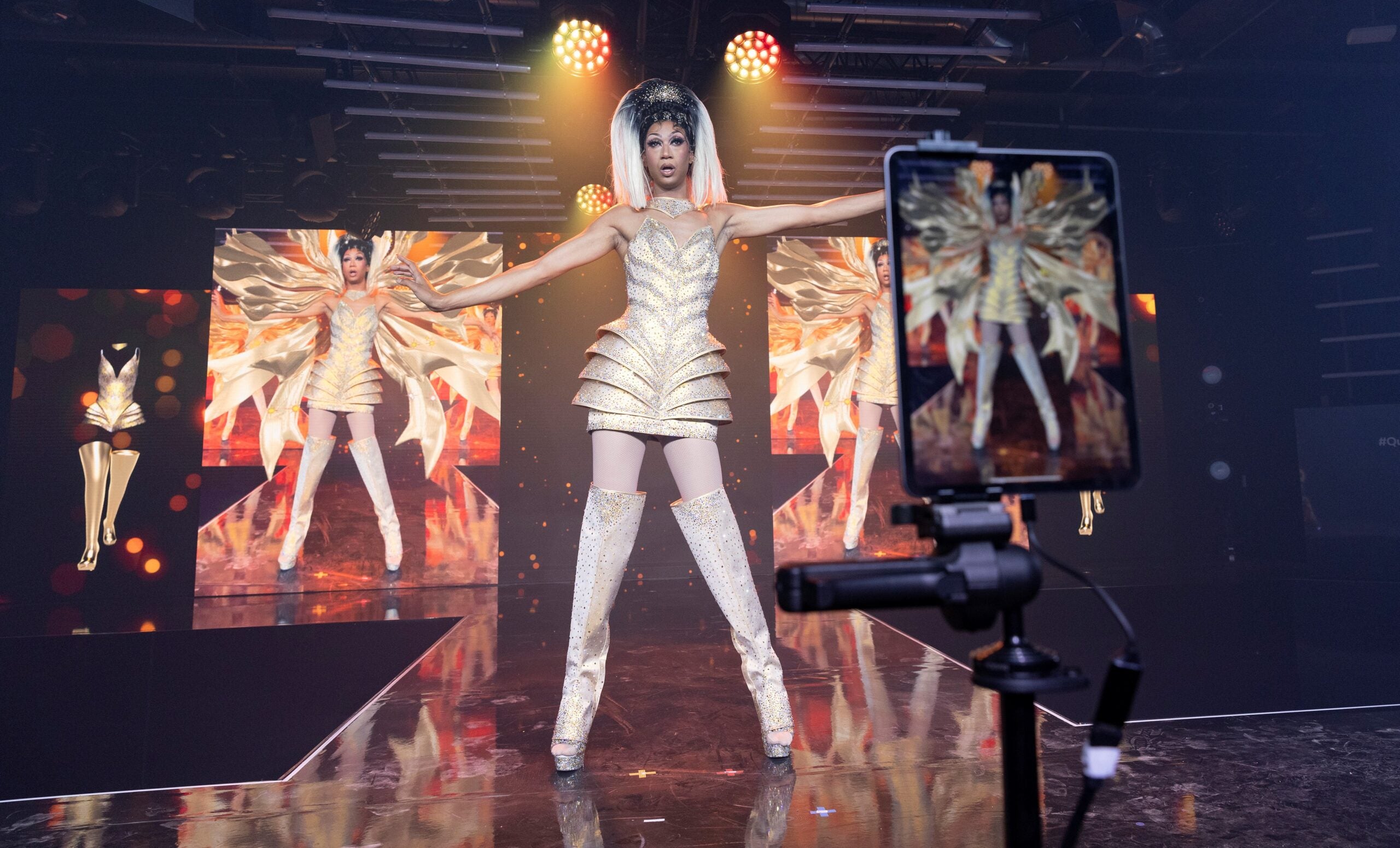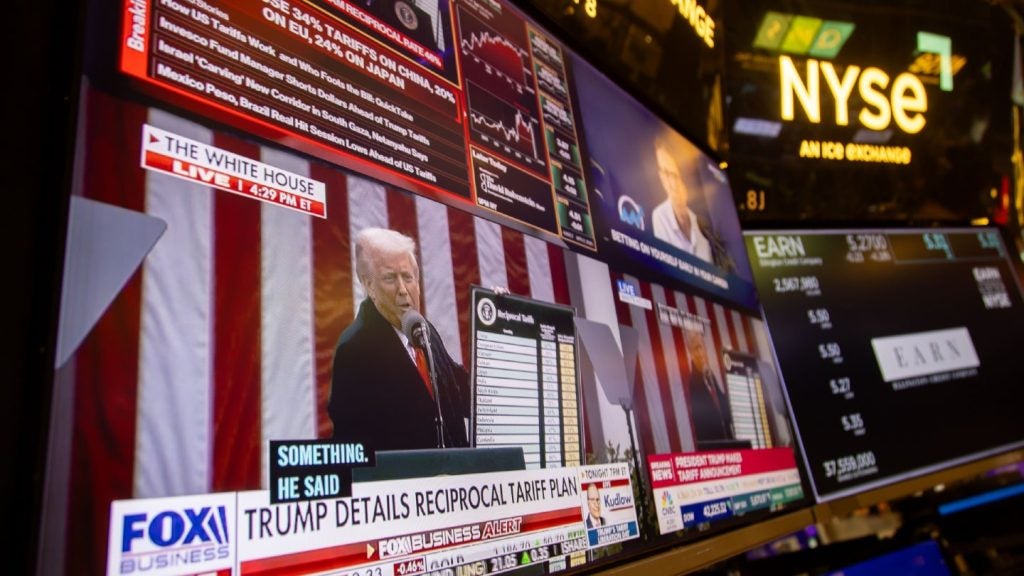
Edible metaverse lipsticks, metaverse-themed candy floss cocktails and a drag queen extravaganza. Last night Meta threw possibly one of the biggest LGBTQ+ parties in London, but lacked in the actual metaverse tech department.
Meta’s Queens of the Metaverse event, held in London, aimed to champion the fact that self-expression and visibility in the queer community is just as important in the virtual world as in the physical world.
The party saw three high-profile drag acts – Blu Hydrangea, Tia Kofi and Adam All – take to the runway to show off some metaverse-inspired looks that Meta says were designed with a combination of virtual and augmented tech.
At the end of each runway performance, the outfit was “brought to life” on screen with a digital enhancement of a moving filter.
The physical outfits were extremely impressive, created by three aspiring British designers from the LGBTQ+ community.
But the climax and Meta’s actual metaverse part of the event, the augmented reality (AR) technology, were nothing more than strangely dated and underwhelming filters.
It felt like a strange way to represent the vision of CEO Mark Zuckerberg’s grand-scoped, second-world metaverse.
The high-profile event comes as Meta continues to be mocked in the mainstream for Zuck’s awful metaverse presentations, falling Facebook user numbers and that one weird mixed martial arts video. If you haven’t seen it, consider this your cringe warning.
Meta’s metaverse event lacked some actual metaverse
The criticised floating avatars previously shown off in the Menlo Park-headquartered company’s metaverse promotions made a very small inclusion in last night’s event.
A video on a screen showed a two-minute clip of the three drag acts’ avatars explaining their mission to create a Meta-inspired look.
They were as basic as ever, looking straight out of a Wii Sports bowling match. Besides that, and the Meta-inspired fashion and nibbles, it was hard to understand where the metaverse fit into it at all.
The AR technology, whilst probably interesting to work with for the designers, didn’t give much of an indication of the capabilities of a second virtual world. The filters used looked straight out of the early days of Snapchat – and really wouldn’t hold up against those now in abundance on TikTok, etc.
Tia Kofi, star of Ru Paul’s Drag Race Season 2, said she jumped at the chance to work with Meta but admits it’s clear the Metaverse has a way to go.
“While it’s clear that the metaverse is in its early stages, I’ve been amazed by how prominent queer talent, creatives, designers and technicians are in bringing their star power to its development,” Kofi wrote for The Independent.
“There are so many barriers to queer and drag creativity that technology can help overcome,” she added.
“Instead, imagine almost infinite options for designing your digital self, fantasy worlds and landscapes, designing fashion that would be impossible in the physical world, with all sorts of digital animations. It doesn’t get much more drag than that.”
Kofi’s passion for the possibilities of technology shows the importance of what Meta is attempting to do in the virtual realm. It’s just a shame that in practice, the metaverse currently feels very grounded in the real world.
GlobalData is the parent company of Verdict and its sister publications.







